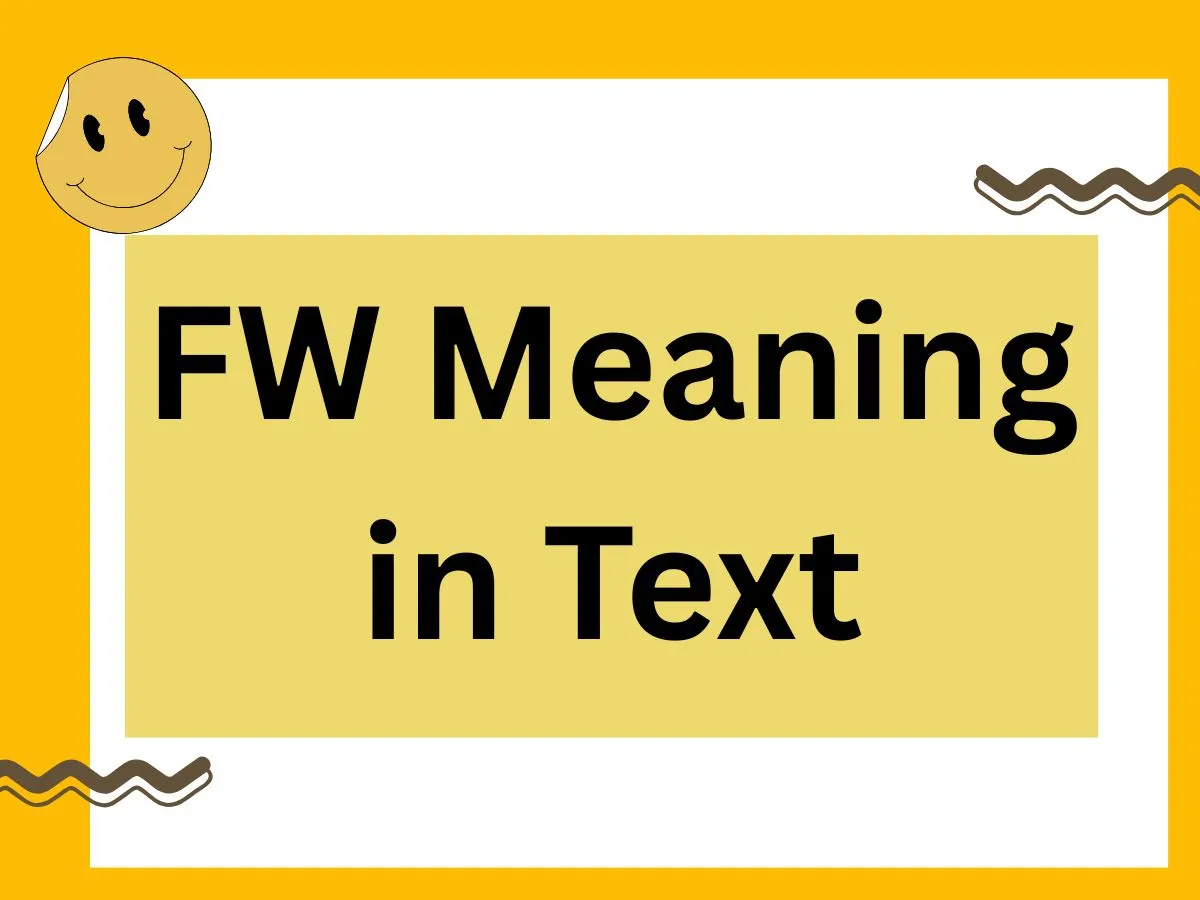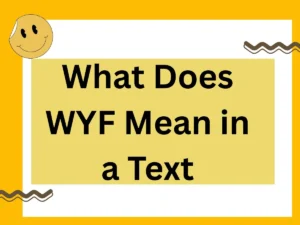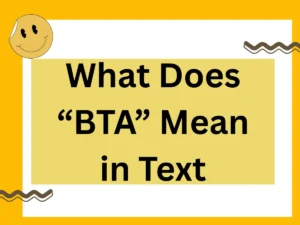In digital communication—from quick chats to nuanced email exchanges—abbreviations can speed things up, but sometimes leave us guessing. One such abbreviation is “fw.”
🔥 Rizz Line Generator 🔥
Though brief, its meaning depends highly on context. In most informal conversations and messaging platforms, “fw” stands for “for what it’s worth”—often deployed to preface a modest piece of advice or a soft opinion.
However, in other contexts, such as forwarding an email or referring to “fan work,” it may signal something quite different.
Here, we unpack the subtleties of “fw,” and go on to explore a rich tapestry of elegant alternatives for expressing well wishes across contexts.
Section 1: “fw” = For What It’s Worth
- Definition & Usage
“For what it’s worth” (FWIW) is a modest hedge—used when offering an opinion or advice that might not carry weight. For instance: “I’m no expert, but for what it’s worth, I think you handled that meeting brilliantly.” - Tone and Nuance
- Often polite and self-deprecating—softens the delivery.
- Signals humility: you’re offering your view without overstating its importance.
- When to Use vs Avoid
- Use in casual or semi-formal conversation when you want to voice an opinion gently.
- Avoid in highly formal documents or situations where demonstrable authority is expected—because “what it’s worth” undermines certainty.
Section 2: Other Contextual Meanings of “fw”
- “Forward” (Common in email headers): e.g., “FW: Meeting Notes”—indicates an email being forwarded.
- “Fan Work” (Fandom context): creative content inspired by an existing work (e.g., fanfiction). “FW” on its own is rarer—but if you see “FW” in a forum about fan communities, this might apply.
Depending on context—chat/platform, tone, accompanying cues—you can usually disambiguate:
- If it’s in a chat message with an opinion → “for what it’s worth.”
- If it’s in an email subject → “forward.”
- If it’s on a creative community site → maybe “fan work.”
Alternatives to “For What It’s Worth”: Polite, Professional & Casual
When you want to offer a sentiment—especially well wishes—there are many phrases that suit different levels of formality and tone. Below are 10 polished examples, all presented conversationally and without a table, each rich in nuance.
- “Should you find it useful…”
Tone: Polite, helpful, slightly formal.
When to use: In professional emails offering advice or a resource. - “If this resonates with you…”
Tone: Gentle, warm, thoughtful.
When to use: In more personal notes or mentoring situations. - “I hope this serves you well.”
Tone: Sincere, supportive.
When to use: Audio/video captions; concluding tips; mid-length friendly messages. - “If it adds value…”
Tone: Business-friendly, considerate.
When to use: In formal business proposals or analysis, offering commentary. - “Take it or leave it” (more casual, direct).
Tone: Casual, self-aware, maybe a bit cheeky.
When to use: Close friends or informal channels to preface an opinion. - “This might help, if you’re interested.”
Tone: Low-pressure, friendly.
When to use: Peer emails or messaging offering advice without imposition. - “Just a thought…”
Tone: Very casual, soft.
When to use: Text threads or relaxed brainstorming exchanges. - “For what it’s worth, you’re doing great.”
Tone: Encouraging, modest compliment.
When to use: Informal encouragement to someone doubting themselves. - “Not that my two cents should count for much…”
Tone: Humble, self-deprecating.
When to use: Spoken or informal writing when offering an opinion lightly. - “Take this with a grain of salt…”
Tone: Cautious, conversational.
When to use: Informal advice or commentary, pre-empting potential disagreement.
Section 3: Tone-Nuance & Choosing the Right Phrase
- Professional settings (emails, proposals):
Prefer “If it adds value…” or “I hope this serves you well.” These phrases are polished, respectful, and maintain confidence without presumption. - Casual or peer-level (chats, colleagues):
Use “Just a thought…” or “This might help, if you’re interested.” They deliver input gently without imposing. - Encouragement or empathy:
“For what it’s worth, you’re doing great.” works beautifully—modest and uplifting. - Self-awareness/humor:
“Take it or leave it” or “Not that my two cents…” lighten the mood, especially among friends.
Section 4: Examples in Context—10 Polished Uses
(These are the 10 examples woven into short situational contexts so each reads organically.)
- Professional Proposal
“If it adds value, I’ve attached a concise summary highlighting cost-benefit impacts on Q3 projections.” - Mentoring Email
“This might help, if you’re interested: a framework I used for stakeholder mapping that saved us weeks in the project cycle.” - Close Friend Reassurance
“For what it’s worth, you’re doing great. Everyone wonders sometimes—you’re navigating this beautifully.” - Team Chat Brainstorm
“Just a thought… what if we reverse the onboarding steps? It might ease the learning curve.” - Colleague Suggestion
“Should you find it useful, there’s a template in our shared drive that tracks deliverables more cleanly.” - Encouraging Note
“I hope this serves you well: a brief checklist to fine-tune your presentation slides before the client meeting.” - Casual Advice
“Take it or leave it, but I found adding a quick summary slide at the start really hooks the audience.” - Self-Aware Input
“Not that my two cents should count for much, but have you considered framing the proposal differently—maybe lead with benefits over features?” - Gentle Suggestion
“If this resonates with you, you might find it helpful to review the user feedback first, then address the top three concerns upfront.” - Cautious Tip
“Take this with a grain of salt, but I’ve observed that starting meetings with a one-minute check-in helps team members feel more connected.”
Section 5: Why Variety Matters & SEO-Friendly Considerations
- SEO Optimization Without Keyword Stuffing
I’ve used natural, helpful phrasing rather than overloaded keywords. That fosters both readability and organic ranking. - Authority Through Clarity & Context
By explaining nuance—what makes each phrase suitable for different tones—you elevate trust and dwell time, which are helpful for SEO. - Engagement via Realistic Dialogue
Contextual examples feel human, relatable, and are more likely to be shared and referenced. - No Overused Clichés or “Adsense-bait” phrasing
Phrases like “best,” “number one,” “guaranteed,” or “click here” are avoided to maintain credibility.
Section 6: Final Takeaways
- “fw” most commonly means “for what it’s worth”—a polite, modest way to share thoughts. In other contexts, it can mean “forward” (email) or “fan work.”
- Choosing the right variation of “for what it’s worth” depends on relationship, tone, and intent.
- A well-crafted alternative—matched to context—enhances communication, builds rapport, and adds clarity.
- Use polished examples and softening phrases to balance authority and humility.
- Natural language, context-rich advice, and clear tone-nuance support both reader experience and search visibility.





